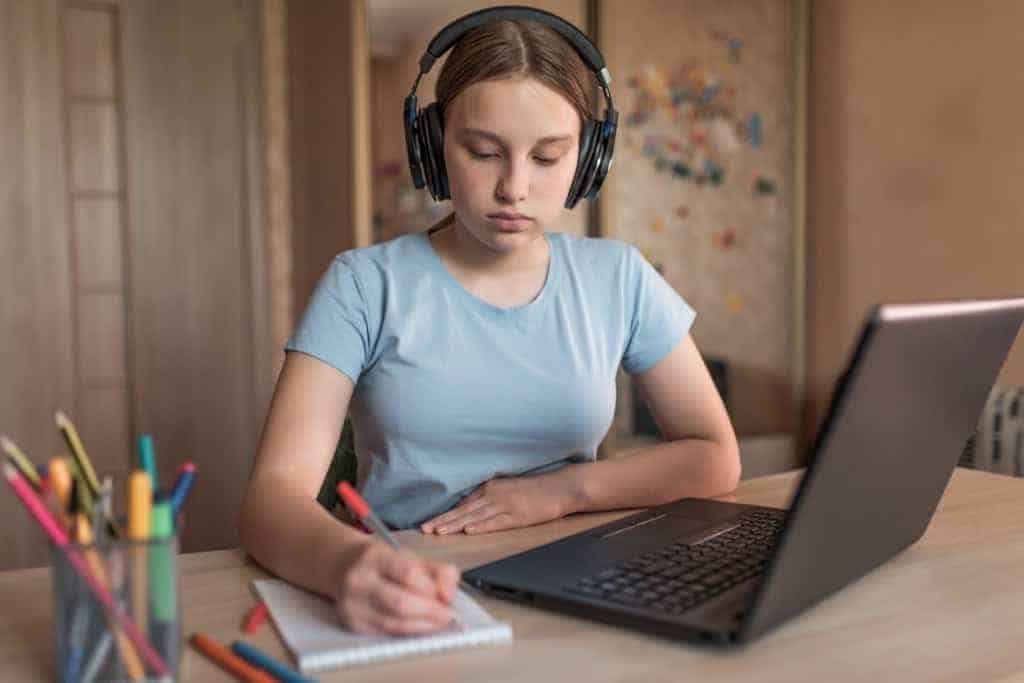Learning through audio can enhance information retention for learners who prefer auditory learning styles, and it may even allow multitasking by accomplishing other tasks simultaneously.
Recent studies have indicated that short multisensory audio-motor training sessions improve tons of things, across the board, for a lot of age groups – but what does it all mean?
What is Audio Training?
Audio training is an innovative form of education which emphasizes listening. Audio has quickly gained in popularity within education because of its many advantages; learners can easily consume it on-the-go using devices such as smartphones, computers and connected speakers; it relieves digital fatigue for users while freeing them up from screen-based instruction; it increases retention while aiding memorization – something seen with increased usage during COVID-19 pandemic outbreak.
A good program provides audio professionals with the resources to stay abreast of industry trends and technologies, offering online courses covering live sound, production, AV rental and film & location sound applications.
Aspiring engineers who wish to launch their careers through engineering may benefit from earning either a certification or degree. Many universities provide associate and bachelor’s degrees in music production or engineering that enable students to gain a complete knowledge of this industry through coursework and practical experience.

Teachers
Audio can also be utilized on online education. Audio recordings allow teachers to create an engaging learning environment for all their students, including those with hearing impairments, by recording lectures for them to play back at any time in different formats or even slow them down or use captions if appropriate.
Smartphone recording audio capabilities can also provide remote or low-resource classrooms with an invaluable asset: their teachers can simply press “record” at the beginning of class and share an audio file immediately on WhatsApp or email so their students can hear what is being taught.
Audio can be an effective way for instructors to provide feedback and support for their students. For instance, teachers could create an assignment in their learning management system asking students to record audio answering questions or providing feedback in response to recorded assignments submitted by students; when these submissions arrive back with them, teachers could listen back in on these recordings to provide any necessary corrections or additional feedback or instructions for revision.
Audio can also be an effective way to teach reading skills to younger students, particularly spelling and vocabulary development. ESL schools encourage their students to listen to native speakers’ pronunciation and vocabulary development (source: https://files.eric.ed.gov/fulltext/EJ1293606.pdf) this provides young learners with an excellent opportunity to develop language proficiency while increasing confidence levels.
However, it’s important to keep in mind that over-reliance on audio in the classroom could cause students to become disinterested if it’s used too frequently. To combat this potential issue, instructors should employ various modalities as ways of keeping students engaged and interested.
Students
Students can benefit from this type of education in numerous ways explained here. Listening to lessons while doing other tasks such as walking the dog, working out, cooking, or driving makes learning easier for them and allows them to pause and replay any concepts that they find challenging to grasp. Learners with vision or hearing impairments find audio-based lessons easier to access than text-based content.
This type of education can also be more engaging for students. They can follow and participate in the conversation between instructor and learner, creating a sense of community among them. Courses featuring practical exercises like quizzes or assignments allow learners to apply their newfound skills directly in daily life for enhanced retention of information and confidence building in new abilities.
As a result, more students are turning to courses as their preferred form of learning. This trend was further strengthened during the COVID-19 pandemic when many schools closed, yet students could continue their education through audio content such as podcasts or recorded lectures.
If you are creating a course, it is critical that you gain an in-depth knowledge of your target audience and their desired areas of knowledge. A great way to do so is visiting relevant Facebook groups or forums where they congregate to see which questions people are raising about the course you intend on making available to them.
As a teacher – for some helpful hints – before recording any lessons, choose an environment that is free from distraction. Record each lesson using a quality microphone in that location, editing to remove mistakes or pauses before organizing them into individual lessons that align with your course outline.
Make your course even more interesting by interviewing an expert in the subject you are teaching. Not only will this add credibility and prestige, but experts may offer insights that students would not otherwise consider.

Other Professionals
Learning formats like podcasts are an efficient way to deliver personalized training directly to target audiences (e.g., learners with disabilities). Companies such as Majelan or Tootak offer platforms dedicated to this form of education as a format is often not required for successful results.
Some platforms provide a range of courses from beginners to experts that span basic to advanced levels and cover topics such as sound recording and editing, engineering, music production engineering and engineering, etc. There are companies who specialize in professional online audio training courses that are exclusively via mail. Many can even be taken online and provide students with certificates upon completion.
Pro audio knowledge can open doors for career opportunities in music, film, and media production. Learning this way or learning this specific thing typically provides tools that enhance musician and podcaster work as well as open new creative doors by giving composers or artists tools they wouldn’t normally have available to them without appropriate equipment.
Many professionals in this field choose to pursue either an associate or bachelor’s degree related to their area of expertise. Some programs can be completed quickly in as little as several months through an accelerated boot camp or certificate program, while others could take several months or longer – and offer invaluable hands-on experience at studios or broadcast stations that can benefit future careers.
Photo source: depositphotos.com